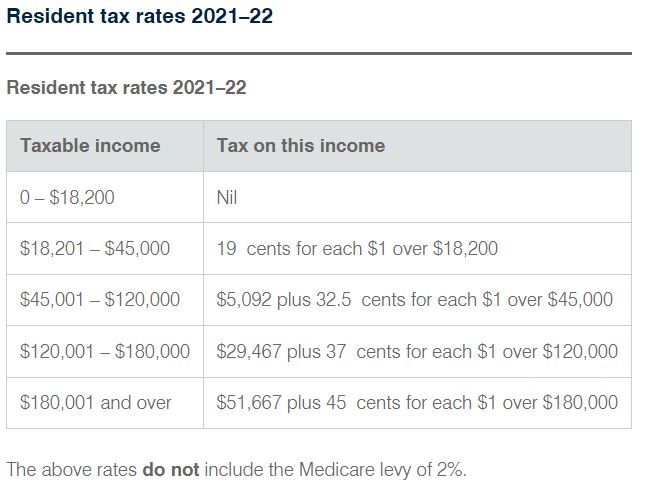Usings an Income Tax Return: Unlocking Possible Financial Savings and Ensuring a Larger Tax Refund
The income tax return serves as a necessary tool for people seeking to optimize their economic end results, using numerous methods for potential financial savings and improved reimbursements. By leveraging credit scores and deductions, taxpayers can purposefully reduce their gross income and enhance their general financial standing. The intricacies of tax guidelines and the ever-evolving landscape of tax obligation legislation necessitate a detailed understanding of available alternatives. What are the crucial techniques that can be utilized to ensure that taxpayers maximize these benefits? The response might expose more than just financial gains.
Understanding Tax Obligation Deductions
Numerous taxpayers may locate themselves bewildered by the intricacies of tax obligation deductions, yet recognizing these crucial elements is critical for maximizing potential cost savings. Tax obligation reductions minimize gross income, therefore decreasing the overall tax responsibility for services and people. Familiarizing oneself with the numerous kinds of reductions offered can considerably improve one's capacity to optimize tax obligation returns.
Deductions can be categorized right into itemized and conventional reductions. The basic deduction offers a set reduction in taxed earnings, while itemized reductions enable taxpayers to identify details costs, such as home loan interest, state tax obligations, and charitable payments. Taxpayers need to analyze which choice yields the greatest benefit, as picking the suitable deduction method can bring about substantial financial savings.
Additionally, it is necessary to preserve accurate records of deductible expenditures throughout the tax year. This technique not just promotes the preparation of tax obligation returns however likewise assures compliance with IRS demands. Taxpayers ought to likewise stay informed regarding modifications in tax regulations that may impact qualified reductions, as these can vary annually. By properly traversing the landscape of tax deductions, people can expose the possibility for an extra desirable tax end result and protected greater economic benefits.
Exploring Tax Obligation Debts
Tax credit histories stand for an additional notable opportunity for taxpayers to minimize their total tax liability, complementing the benefits obtained from reductions. Unlike deductions, which lower gross income, tax credit scores give a dollar-for-dollar decrease of the real tax owed. This distinction makes tax credit scores specifically beneficial for people seeking to maximize their financial savings.
There are two main kinds of tax credit scores: nonrefundable and refundable. Nonrefundable credit ratings can minimize your tax liability to no but not listed below that amount, while refundable debts can lead to a refund if the credit scores exceed the tax owed. Examples of typically declared tax credit scores include the Earned Income Tax Credit Report (EITC), the Kid Tax Obligation Credit report, and education-related debts like the American Possibility Debt.
Qualification needs for these credit ratings can differ substantially, often based on revenue, filing condition, and certain conditions. Taxpayers need to thoroughly assess the criteria linked with each credit rating to ascertain they claim all advantages for which they certify. By tactically using available tax credit ratings, people can boost their tax returns, eventually resulting in significant financial savings and possibly bigger reimbursements.

Spending Your Reimbursement Carefully
Getting a Tax reimbursement can feel like an economic windfall, yet just how that cash is utilized can greatly impact long-lasting monetary health and wellness. Instead than viewing your reimbursement as non reusable revenue, consider it a chance to invest in your future.


One reliable choice is adding to a Private Retired Life Account (INDIVIDUAL RETIREMENT ACCOUNT) This can enhance your retired life savings while potentially yielding tax benefits. Spending in a varied stock portfolio can give significant growth capacity over time, enabling your refund to function for you in the market.
Additionally, consider using your refund to pay down high-interest financial obligation, such as debt card balances. Lowering financial debt can improve your economic standing Related Site and alleviate stress and anxiety, eventually enabling you to assign more funds toward financial investments in the future.
For those concentrated on education, using your refund for a 529 college financial savings plan can assist secure a brighter future for on your own or your kids.
Planning for Future Expenditures
Very carefully preparing for future expenses is necessary for preserving monetary security and attaining long-term goals. A well-structured financial plan permits individuals to assign resources properly, guaranteeing that upcoming expenses do not interrupt their economic well-being. Tax returns can give a useful structure for this preparation procedure.
Using the refund as a springboard, people can identify and focus on substantial future costs, such as home repair work, education and learning costs, or health care needs. Establishing a budget that incorporates these prepared for costs allows a proactive method, minimizing the chance of financial pressure when the moment involves resolve them.
Moreover, setting apart funds from your tax obligation reimbursement into dedicated interest-bearing accounts can improve the efficiency of your preparation. Australian Tax return online. Take into consideration producing an emergency fund particularly for unanticipated expenditures, guaranteeing that you are prepared for unforeseen situations without thwarting your financial objectives
Usual Mistakes to Prevent
Numerous people make critical errors when handling their tax obligation returns that can threaten their monetary preparation initiatives. Poor documents can lead to missed deductions, resulting in a lower reimbursement or higher tax obligation liability.
One more regular mistake is disregarding to examine tax regulation changes. Tax obligation policies can advance annually, and ignorance of these modifications may lead to missed opportunities for tax credit ratings or deductions. Furthermore, several taxpayers neglect eligible deductions, such as those for medical expenditures or instructional costs.

Declaring taxes as well late or too early can additionally be detrimental. Early filers may miss out on out on last-minute tax obligation breaks, while late filers take the chance of penalties and rate of interest.
Furthermore, not seeking expert assistance when necessary can bring about costly mistakes. Tax specialists can supply beneficial understandings, guaranteeing compliance and optimizing possible cost savings.
Last but not least, rushing with the return can result in straightforward math errors or overlooked forms. Putting in the time to verify all entrances is vital for an effective tax return result.
Verdict
To summarize, the calculated usage of income tax return works as an important system for making the most of monetary advantages. By extensively comprehending and applying deductions and credit scores, individuals can greatly decrease gross income and enhance refund amounts. Additionally, prudent financial investment of reimbursements and effective planning for future expenditures Visit Your URL add to lasting financial security. Recognition of typical challenges can also simplify the tax obligation process, inevitably encouraging taxpayers to utilize their returns for a much more secure monetary future.
Tax credit ratings stand for another noteworthy opportunity for taxpayers to decrease their total tax liability, enhancing the benefits obtained from reductions. Unlike reductions, which reduced taxed earnings, tax obligation credit reports supply a dollar-for-dollar decrease of the actual you can check here tax obligation owed. Nonrefundable credit scores can minimize your tax obligation responsibility to no yet not listed below that quantity, while refundable credit ratings can result in a reimbursement if the credit histories surpass the tax owed. Examples of frequently claimed tax credit histories consist of the Earned Earnings Tax Debt (EITC), the Child Tax Obligation Credit rating, and education-related credit scores like the American Opportunity Credit Scores.
Tax policies can progress each year, and ignorance of these modifications may result in missed opportunities for tax obligation credit reports or deductions. - Australian Tax return online